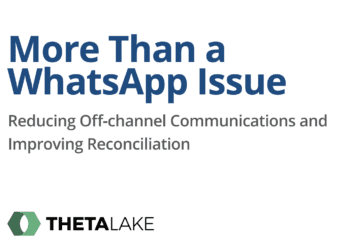Who has access to what — and when, where and why? Managing the answer to these critical questions is a key component of modern identity governance. Omada’s Rod Simmons outline a streamlined solution that relies on automation.
New compliance regulations continue to proliferate, from California’s CCPA to HIPAA in the U.S. health care sector to GDPR in the EU, Sarbanes-Oxley (SOX) for publicly traded organizations and many more, depending on your industry.
The scope of these compliance mandates varies greatly — with some necessitating assessments and others requiring monitoring. The common thread is that the majority call for tighter IT governance or password security, and they all have to do with how customer/user data is stored.
Maintaining compliance isn’t easy, and many organizations are struggling to meet these burdens, as indicated by escalating fines. The good news is that a modern identity governance strategy can make navigating these challenges far easier.
Complications with compliance
Because of the wide-ranging regulations with extensive or organizational reach and the possible negative impact on a company’s efficiency, each new compliance rule has increased operational complexity.
The shift to the cloud and the rise of the remote and hybrid work models have created substantial challenges for today’s businesses in terms of maintaining control, managing risk and guaranteeing compliance, all while preserving organizational efficiency.
Despite the fact that 7 out of 10 business-critical applications will soon be based in the cloud, according to a recent Enterprise Strategy Group report, 68 percent of respondents agree that cloud services for these applications have complicated identity governance and administration (IGA) programs. This, in turn, has created greater regulatory complexity.
Because third-party suppliers don’t necessarily follow the same in-house governance and access regulations, including how they process data, using them and their governance processes might make it harder to meet compliance mandates. Different geographic locations of business units or business lines also expose the entire company to current or forthcoming regional laws.
And what if your company, like many others, is now employing remote workers? Acquiring talent locally and globally requires compliance with a range of data privacy standards your company may not have seen before.
What’s wrong with noncompliance?
Intentional failure to comply with mandates is certainly a possibility, but it doesn’t make for a smart business strategy. For one thing, it can be costly. As an example, under GDPR, the EU’s data protection authorities can levy fines of up to €20 million or 4 percent of global turnover for the previous financial year, whichever amount is larger. Fines in the third quarter of 2021 were about almost €1 billion, greatly exceeding the totals for the first and second quarters combined.
Fines aren’t the only issue that might arise from noncompliance; there’s also the issue of brand and reputational harm. Perhaps more crucially, failing to comply can indicate that you aren’t satisfying fundamental security requirements, putting you at risk of a data breach or other cybercrime. The fallout from a cybersecurity breach costs way more time and causes more headaches than ensuring compliance in the first place.
Making IGA a key tool in your toolbox
Companies can tackle a complicated and always-expanding set of international standards only if they have established a robust people strategy, backed by solid technology and security. As digitalization advances and teams are tasked with doing more with fewer resources, IT departments are experiencing heavier workloads, making it even more difficult to ensure compliance and stay abreast of security standards.
IGA can help comply with legal requirements, avoid fines and stop data breaches. It can assist businesses in determining who should have access to what and enforcing best practices. And that means you’ll be able to meet numerous critical compliance demands this way.
These IGA capabilities assist enterprises with their compliance goals:
- Identity lifecycle management keeps identities from gaining access they don’t need as their roles and responsibilities change.
- Certification of access privileges confirms that the right privileges are still in place for the right people and the right roles.
- Continuous/automated reporting and monitoring allows teams to readily pull data and demonstrate access compliance.
- Separation of duties (SoD) ensures the elimination of harmful combinations.
Steps toward stronger compliance
To begin the process of better compliance, first choose a framework that matches your company’s needs. Be certain that you understand where you’ll need to make exceptions or exclusions in terms of access. You must have the capability to gather logs automatically and keep track of who has approved access — and to what. You’ll also need a system in place for regularly certifying and recertifying.
Include the business decision-makers in the process. IGA should not be only the responsibility of IT departments; other line-of-business stakeholders must also be involved. Clearly identify your identity and access posture risks and obstacles and make sure your process meets industry standards.
Adaptable compliance
Businesses today aren’t merely subjected to static audits and compliance requirements; these mandates are constantly changing. And as the world becomes increasingly connected, having a long-term plan that can scale to satisfy the ever-increasing web of compliance regulations is essential. As your organization improves its IGA, you’ll be better able to determine access rights and apply identity best practices. You’ll be able to meet numerous critical compliance demands this way. And that means you won’t have to sacrifice efficiency to meet these requirements.



 Rod Simmons is vice president of product strategy at Omada. As a 20-year industry veteran, he has a passion for innovation and software design. He has extensive experience in leading and designing cutting-edge products and technologies. Prior to Omada, Rod spent time at Stealthbits, BeyondTrust and Quest Software. During his tenures, he held the roles of vice president of product strategy, director of product management and director of solution architects, respectively.
Rod Simmons is vice president of product strategy at Omada. As a 20-year industry veteran, he has a passion for innovation and software design. He has extensive experience in leading and designing cutting-edge products and technologies. Prior to Omada, Rod spent time at Stealthbits, BeyondTrust and Quest Software. During his tenures, he held the roles of vice president of product strategy, director of product management and director of solution architects, respectively.







